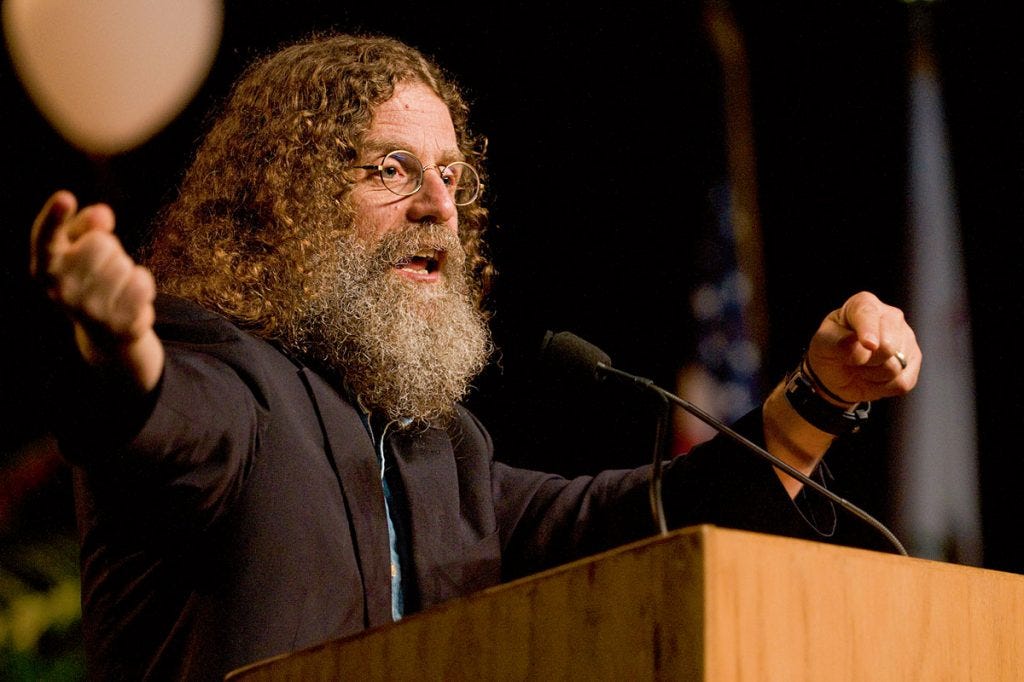Failure Isn't Your Fault: The Biological Trap of Modern Life | Robert Sapolsky
We often hear that success is a matter of willpower, grit, and pulling ourselves up by our bootstraps. Conversely, failure is framed as a personal shortcoming, a lack of effort or character. But what if this narrative is fundamentally flawed? Stanford neurobiologist Robert Sapolsky challenges this perspective, suggesting that much of what we perceive as 'failure' in the modern world isn't just about individual resolve, but is deeply rooted in our biology clashing with the environment we've created.
Sapolsky's groundbreaking work dives into the devastating impact of chronic stress, revealing how our ancient survival mechanisms are dangerously ill-suited for the constant psychological pressures of contemporary life – from relentless work deadlines and financial anxieties to the pervasive hum of social media comparison. As explored in discussions around his work, such as the one found at
, understanding this biological trap is crucial.
The Mismatch: An Ancient System in a Modern World
Our stress response system, often called the 'fight-or-flight' response, evolved over millennia to handle short-term, acute physical emergencies. Think encountering a predator. Your body floods with hormones like adrenaline and cortisol, mobilizing energy reserves, increasing heart rate, and shutting down non-essential functions like digestion and immunity – all vital for immediate survival. The problem, Sapolsky argues, is that we activate this same potent, energy-intensive system for purely psychological stressors: worrying about a mortgage payment, navigating office politics, or feeling inadequate online. He vividly illustrates this mismatch:
Activating our emergency stress response for everyday worries is like redlining an engine constantly.
This system wasn't designed for the chronic, low-grade, psychological anxieties that define modern existence. Keeping the 'engine' constantly revved takes a severe toll.
The Biological Cost of Chronic Stress
When the stress response stays switched on, the consequences are far-reaching and physically damaging. Prolonged exposure to stress hormones, particularly cortisol, dysregulates numerous bodily systems. Sapolsky's research highlights how chronic stress can:
Suppress the immune system, making us more vulnerable to illness.
Damage cardiovascular health, contributing to hypertension and heart disease.
Disrupt metabolism, potentially leading to weight gain and type 2 diabetes.
Impair brain function, critically shrinking the hippocampus – a brain region vital for learning, memory, and emotional regulation. This damage can make it even harder to cope with future stressors, creating a vicious cycle.
Hierarchy, Health, and the Human Condition
Through extensive research, notably with baboon troops, Sapolsky uncovered a fascinating link between social hierarchy, perceived control, and stress physiology. Lower-ranking individuals, often facing unpredictability, lack of control, and reduced social support, exhibited significantly higher levels of stress hormones and poorer health outcomes compared to their higher-ranking counterparts. These findings have stark parallels in human society, where socioeconomic status, perceived rank, and feelings of powerlessness strongly correlate with stress levels and health disparities.
Social rank and the perception of control profoundly influence our physiological response to stress.
The Buffering Power of Perception and Support
However, the picture isn't entirely bleak. Sapolsky also identified key psychological factors that can dramatically buffer the negative effects of stress, even in challenging circumstances. These include:
Predictability: Knowing when a stressor is coming allows for rest periods.
Control: Having a sense of agency or control over the situation, even if it's just perceived control, significantly reduces the stress response.
Social Support: Strong social connections and support networks are powerful protectors against stress.
Outlets: Having outlets for frustration or displacement behaviours (like exercise or hobbies) can mitigate stress's impact.
These elements underscore the importance of perception and context in mediating our biological response to adversity.
Modern Amplifiers: Pouring Fuel on the Fire
The modern world seems almost engineered to exacerbate this biological mismatch. Factors like rapid technological change, economic precarity and job insecurity, the erosion of community ties, information overload, and the curated perfectionism often displayed on social media all contribute to a state of chronic psychological stress. These constant, pervasive pressures relentlessly activate our ancient stress circuitry in ways it never evolved to handle.
Rethinking Failure: Beyond Willpower
Understanding Sapolsky's insights compels us to question the simplistic narrative that blames individuals for succumbing to the pressures of modern life. If our environment constantly triggers a damaging biological stress response, and if factors like social hierarchy and lack of control demonstrably impact our physiology, is 'failure' truly just a personal deficit? Or are many of us caught in a biological trap, struggling against physiological responses hardwired into us, activated inappropriately by the world we inhabit? This perspective doesn't absolve personal responsibility entirely, but it shifts the focus, suggesting that systemic and environmental factors play a far greater role than often acknowledged. Perhaps, in many ways, we are biologically disadvantaged in the very world we've built.




Thank you so much for this article and also thanks for posting it as a separate sound reading on YouTube. Makes it easier to share. No description of anything is perfect. But this one sounds good and offers some hope.
Still respect Sapolsky’s work but disagree with his materialist determinism perspective. We do have free will whether he likes it or not.